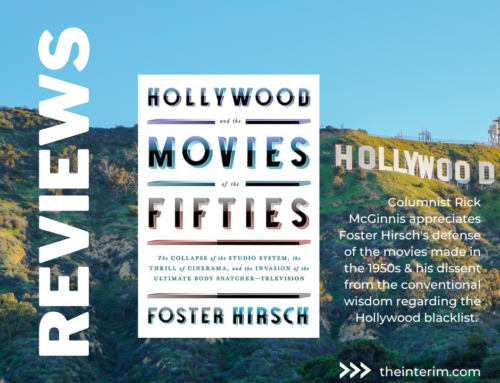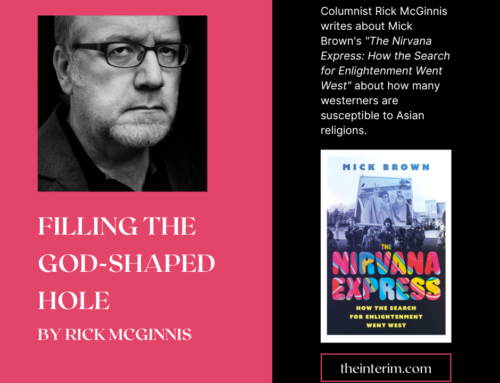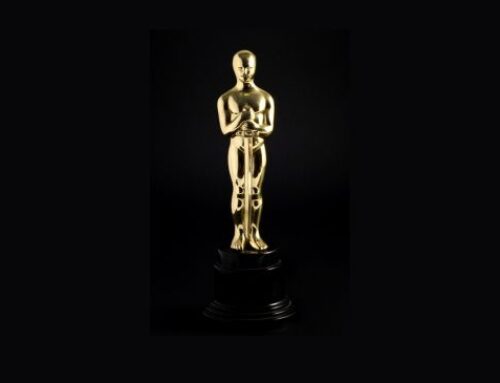 “When Toronto voters chose Rob Ford to be their mayor on October 25, 2010, they knew full well they were electing a flawed man.” This is the sentence reporter Robyn Doolittle chose to begin the final, summary chapter of Crazy Town, her book on the rise and (apparent) fall of Toronto mayor Rob Ford, and to give her credit, it shows that she understands the people pejoratively dubbed “Ford Nation” better than many of her colleagues at either the Toronto Star – the paper where Doolittle made her reputation covering Ford – or the Globe & Mail, the paper that poached Doolittle just after Crazy Town hit the shelves.
“When Toronto voters chose Rob Ford to be their mayor on October 25, 2010, they knew full well they were electing a flawed man.” This is the sentence reporter Robyn Doolittle chose to begin the final, summary chapter of Crazy Town, her book on the rise and (apparent) fall of Toronto mayor Rob Ford, and to give her credit, it shows that she understands the people pejoratively dubbed “Ford Nation” better than many of her colleagues at either the Toronto Star – the paper where Doolittle made her reputation covering Ford – or the Globe & Mail, the paper that poached Doolittle just after Crazy Town hit the shelves.
“Ford was,” Doolittle admits with candour rare among Canadian journalists, “the best candidate in the race. He ran the best campaign, he stayed on message, and he talked about issues people cared about.” This simple fact was almost impossible to explain to Ford’s opponents both before and after Ford’s 2010 victory. I know – I tried.
Just after he won, I was invited to explain why I – a non-suburban, car-less, transit-using member of the overwhelmingly liberal media – voted for Ford, in an online essay for Spacing, an urbanist magazine. I tried to explain my choice, and summed it up by saying that, after two terms of Mayor David Miller’s expansive (and expensive) vision for Toronto, I was grateful to vote for a mayor that had no apparent vision apart from cutting budgets and tightening spending. “Rob Ford might say some rude or even silly things in the next four years,” I wrote, “but I’m certain he won’t be trying to sell me his vision.”
Writing this just after Mayor Ford has disappeared from a battle for re-election into what everyone hopes is some kind of rehab, following leaked videos that featured some unspeakably crude outbursts, I can say that he hasn’t disappointed me, on either front. Before his term derailed into a train wreck of lawsuits and drugs, he actually managed to rein in municipal spending, make transit an essential service not subject to city-crippling strikes, and break a garbage collector’s union that had made putting my bins at the curb every week a ritual likely to end in either trash strewn all over the sidewalk or bins simply left behind by sanitary workers unwilling to do their jobs.
But by halfway through his first term, he made me wince in anticipatory horror every time his name popped up in a news alert or Twitter feed. Every sordid moment of that term and more is catalogued in Doolittle’s Crazy Town, a book that’s likely an appallingly entertaining read for anyone living outside of Toronto – like the millions of people all over the world who learned about the city for the first time from hearing about Ford’s booze- and crack-fuelled escapades on late-night television.
For many Ford voters, however, we got a chance to walk a mile in the shoes of Ford haters at least once a month from the moment the Gawker, a U.S. website, revealed that the heretofore obscure mayor of a Canadian city had been filmed smoking crack.
To Ford haters, the mayor was a thuggish homophobe who refused to attend the annual Gay Pride parade, breaking a tradition honoured by his predecessors, who understood that once in office they had to become “the mayor of all the people.” For Ford supporters, his decision seemed wholly understandable; aside from whatever personal discomfort he was willing to admit in the face of Pride, it was an event where his presence was likely to unleash all the hostility that Ford haters had never bothered to hide. And in any case, after hearing the media frame Ford’s victory as the rotten fruit of a suburban-versus-urban, Timmy’s-versus-Starbucks, cars-versus-streetcars civil war forced on the city by the 1998 amalgamation of Toronto’s six municipalities into one, it was hard to believe that he really was, by their own terms, the mayor of all the people.
But every new drug and booze revelation, every obscene outburst and evasion made us feel the perpetual outrage of the Ford haters for at least a few moments on the evening news or over the morning papers. And yet I have enjoyed living in Crazy Town, if only because Ford’s appalling intemperance has been such a welcome corrective to my hometown’s century-old pious self-regard, an overdue admission that “Toronto the Good” was a lie we told ourselves, more in the hope that we’d believe it more than anyone who didn’t live here, a fiction as shameless as calling our public transit system “The Better Way.”
As a social conservative I recoil at the embarrassment Ford has inflicted on his wife and children and cringe at the damage he’s done to his dignity. I don’t, however, wring my hands over his supposed affronts to the dignity of the office of mayor. Politics is a deeply suspect and compromised business and sane people are rightfully suspicious of the character of anyone who wants to excel at it, and I’m only being a little flippant when I say that it might be misplaced to demand high moral purpose from the man whose responsibilities include the efficient working of your sewers.
Ford might have bolted from the election trail deep into the bushes but he remains on the ballot, which is, even for a municipal election, particularly dismal. The serious candidates to the right of NDP standard-bearer Olivia Chow are either untrustworthy (Karen Stintz,) uninspiring (David Soknacki,) or both (John Tory). I can’t predict what fresh mortification Rob Ford’s ill-chosen friends might capture on their iPhones between now and October, but of the alternatives are still so measly, I might not be the only person to vote for another four years of life in Crazy Town.




